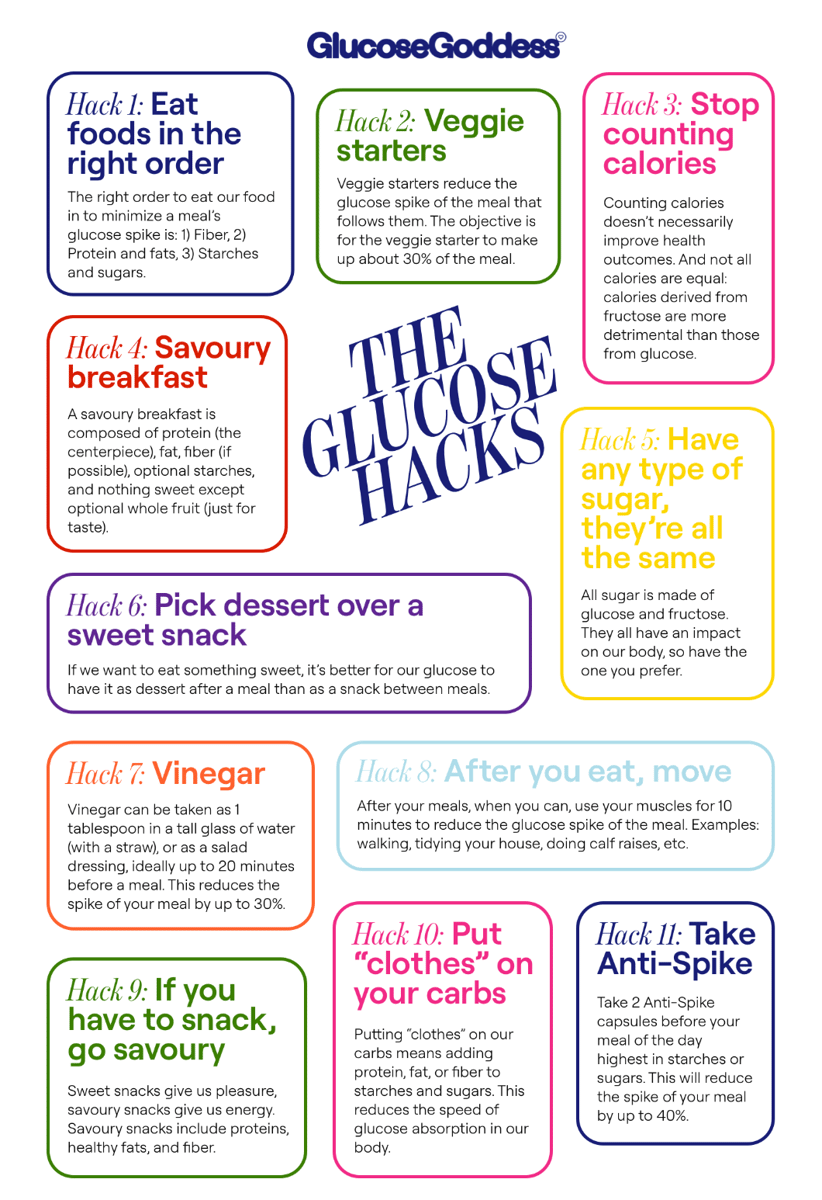
By now you've probably heard of "glucose-spiking", the latest wellness obsession to follow on from high protein diets and parasite cleanses.
Popularised by biochemist and social media sensation Jessie Inchauspé, AKA Glucose Goddess, glucose tracking to prevent spikes is *the* practice that everyone seems to believe will solve all of their problems — made all the easier by Inchauspé's "10 Glucose Goddess Hacks."
Inchauspé has amassed a casual 5.6 million followers on Instagram thanks to her hacks to help people stabilise their glucose, which she says will stop cravings, give you more energy, help you think more clearly, and even improve acne, anxiety and sleep apnoea.
Listen: Let's talk about our weight. Post continues below.
She says she first became fascinated with how food affects our minds and bodies when she was experiencing episodes of depersonalisation-derealisation disorder more than a decade ago.
After tracking her food and nutrition, noting how it affected her physical and mental health, and then researching the science side of it, she came to the conclusion that glucose spikes were making her feel worse.
@glucosegoddess_ Cut Carb Impact by 30% with One Tablespoon of #vinegar 🌟 #glucose #glucosegoddess #t2d
♬ original sound - Glucose Goddess Shop
But now, Inchauspé is spruiking an "Anti-Spike" supplement for people who want to manage their glucose levels, and it's certainly raised my eyebrows as a journalist who knows to be suspicious of any magic pills touted to solve problems you didn't know you had.
So, I decided to ask a nutritionist about how glucose works and if the Glucose Goddess lifestyle lives up to the hype.






























































































